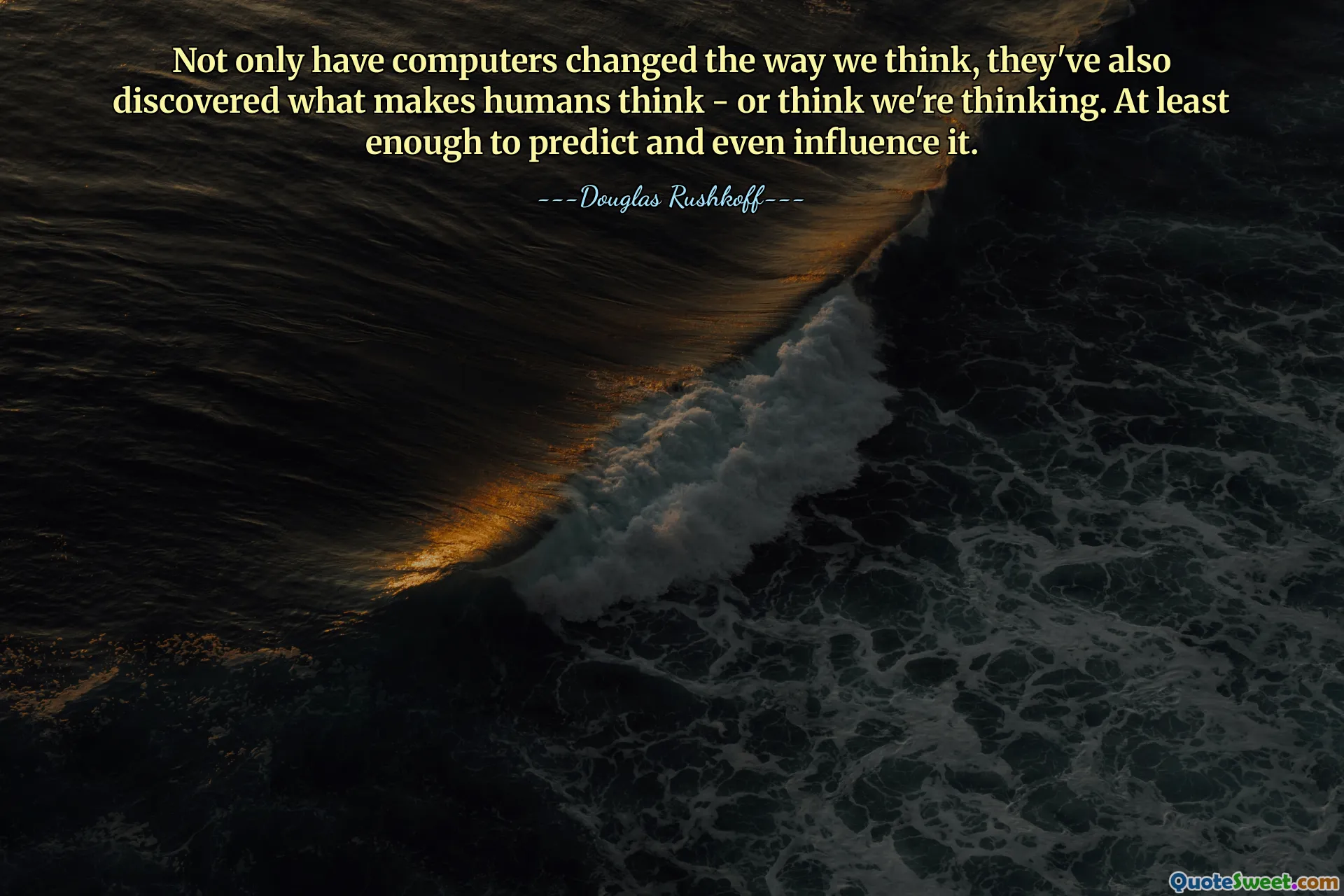
Not only have computers changed the way we think, they've also discovered what makes humans think - or think we're thinking. At least enough to predict and even influence it.
This quote highlights the profound impact of technology, particularly computers and algorithms, on human cognition and behavior. In the past few decades, digital technologies have reshaped not only our communication and information consumption but also our internal thought processes. One of the most striking developments is the way these systems can analyze our behaviors—our clicks, searches, social media interactions—and identify patterns that reveal our preferences, fears, and hopes. This understanding enables them to anticipate our needs and influence our decisions on a scale that was previously unimaginable.
The idea that computers have 'discovered what makes humans think' suggests a shift from our being the sole initiators of thought to subjects whose thinking can be manipulated or guided by external forces. This raises important questions about free will, autonomy, and the ethical use of such powerful tools. As algorithms become more sophisticated, they can subtly shape our perceptions, opinions, and even identities, often without our awareness. This can lead to echo chambers, manipulated narratives, and societal polarization.
Moreover, the ability of computers to 'predict' human behavior feeds into a broader conversation about surveillance capitalism and privacy. Companies and governments can leverage this knowledge to target individuals with tailored content or offers, effectively influencing choices ranging from consumer behavior to political votes.
While these advancements can improve convenience and efficiency, they also pose risks of overreach and manipulation. The core challenge is balancing the incredible benefits of technology with the need to preserve personal agency and prevent exploitative practices. Recognition of these dynamics is essential for fostering an informed and empowered society that can navigate the digital age with awareness and responsibility.









